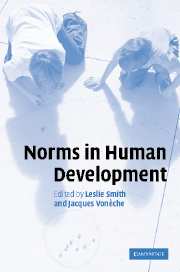
- Cited by 7
-
Cited byCrossref Citations
This Book has been cited by the following publications. This list is generated based on data provided by Crossref.
Smith, Leslie 2007. Book Reviews. British Journal of Educational Psychology, Vol. 77, Issue. 1, p. 246.
2008. Book received. Psychological Medicine, Vol. 38, Issue. 6, p. 903.
Stein, Zachary 2009. Resetting the Stage: Introducing a Special Section About Learning Sequences and Developmental Theory. Mind, Brain, and Education, Vol. 3, Issue. 2, p. 94.
Brinkmann, Svend 2011. Psychology as a Moral Science. p. 145.
Brinkmann, Svend 2011. Psychology as a Moral Science. p. 17.
Brinkmann, Svend 2011. Psychology as a Moral Science. p. 79.
Chaves-Castaño, Liliana Piñeres-Sus, Juan David Olarte Rodríguez, Jose Luis and Runge Peña, Andrés Klaus 2020. La necesidad de una posición crítica en la investigación psicológica. Apuntes sobre teoría y experiencia. CES Psicología, Vol. 13, Issue. 2, p. 166.
- Publisher:
- Cambridge University Press
- Online publication date:
- September 2009
- Print publication year:
- 2006
- Online ISBN:
- 9780511489778
- Subjects:
- Cultural Psychology, Developmental Psychology, Psychology




